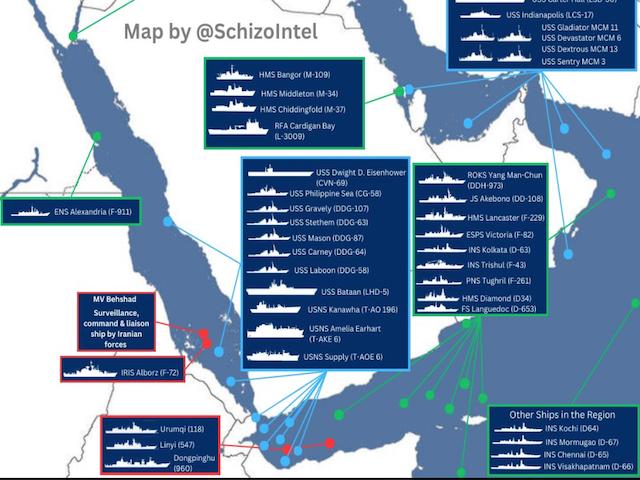US and European Nations Grapple with Strategic Decisions as Houthi Threats Disrupt Global Shipping
Introduction:
The ongoing conflict in the Red Sea, fueled by the Houthi rebels' increasing military capabilities, is on the brink of drawing Western nations, notably the United States, into the complex web of Middle Eastern geopolitics. This situation presents a significant challenge for US President Joe Biden, who must navigate a precarious path between international responsibilities and domestic political considerations.
Biden's Conundrum:
As President Biden grapples with his current standing in opinion polls, trailing behind his predecessor Donald Trump, the unfolding crisis in the Middle East poses a risky electoral gamble. His administration's response has so far been cautious, focusing on deterrent measures such as deploying the USS Gerald Ford to the East Mediterranean and establishing the "Prosperity Guardian" coalition in the Red Sea. Despite these efforts, the coalition has yet to take decisive action against the Houthi rebels in Yemen, who continue to pose a significant threat to vital maritime routes.
#Pentagon wants to attack Houthis in Yemen. The Biden administration is hesitant. Who will win that battle. The Pentagon or the White House. 👀pic.twitter.com/u3LKEepChu
— WORLD AT WAR (@World_At_War_6) January 1, 2024
The British Stance:
The UK, a key member of the maritime coalition, is growing increasingly impatient with the disproportionate military might of the Houthis in the Red Sea. Despite their sophisticated arsenal, including ballistic and cruise missiles, aircraft, and unmanned boats, the Houthis are a non-state terrorist group, not a formal navy like Iran's. This distinction is critical in shaping the coalition's response.
The impact of the conflict on global trade is profound, as exemplified by the Danish shipping titan Maersk, which controls 15% of global trade. The company's recent withdrawal from Red Sea routes, following attacks on its vessel Maersk Hangzhou, underscores the urgency of the situation. Europe cannot afford disruptions in a trade route that handles 12% of global maritime commerce, as the consequences include extended supply chains and soaring costs.
Sunak's Aggressive Approach:
Reports from "The Times" indicate that UK Prime Minister Rishi Sunak is advocating for more assertive actions by the coalition against the Houthis. This security policy aligns with that of the Pentagon and indirectly benefits Israel by involving Western powers in direct actions within Yemen.
.@thetimes is reporting the 🇬🇧UK will join 🇺🇸US in targeted strikes on Houthi targets in Yemen.
— Navy Lookout (@NavyLookout) December 31, 2023
UK contribution could include the use of RAF Typhoons with Storm Shadow missiles operating from Cyprus.
HMS Diamond lacks land attack missile capability but is an excellent air… pic.twitter.com/1kBS5j4Cwe
Israel's Calculated Risk:
Israel remains keenly aware of the potential repercussions of intensified military operations against the Houthis. Any significant escalation is likely to provoke a sharp increase in missile and UAV attacks, particularly targeting Eilat. However, Israel's strategic position is somewhat buffered by its distance from the Houthis' effective range, though the reliability of intelligence from Iran, a key backer of the Houthis, remains questionable.
Conclusion:
As the Western powers, led by the US and the UK, deliberate their next move, the Red Sea conflict stands at a critical juncture. The decisions made in the coming weeks will not only shape the regional balance of power but also have far-reaching implications for global trade and security.


